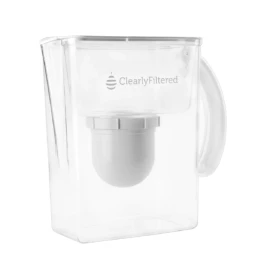Living with kidney disease often means adapting to a new lifestyle that supports kidney health and overall well-being. Think of it as “kidney disease lifestyle management.” By incorporating a few key habits into your daily routine, you can significantly improve your quality of life. Here’s a guide to a day in the life of someone managing kidney disease, focusing on morning rituals, stress reduction techniques, evening routines, and more.

By Majd Isreb, MD, FACP, FASN, IFMCP
Kidney Disease Lifestyle Management – Living Well with Kidney Disease
Morning routine for kidney health
- Hydration (With a Caveat): Starting your day with a glass of water is generally a healthy practice. However, if you have kidney disease, it’s crucial to follow your doctor’s advice regarding fluid intake. This advice varies depending on the stage of your kidney disease and any fluid restrictions you may have.
- Gentle Exercise: Morning is a great time for light exercise. This could be a short walk, yoga, or stretching. Exercise helps in managing blood pressure and weight, both crucial for kidney health.
- Journaling: Keeping a journal can be therapeutic. It helps in managing stress and anxiety, which is especially beneficial for those with chronic health conditions.
- Meditation and Mindfulness: Starting your day with meditation can help center your thoughts and reduce stress, improving overall mental health.
- Cold Showers: Although it might seem daunting, a cold shower can invigorate your system and boost circulation. However, it’s important to consult with your healthcare provider before making this a part of your routine.
Join us to end the kidney disease epidemic
Light therapy and its benefits
Light therapy typically involves a light box emitting bright light that mimics natural outdoor light. It’s a recognized treatment for various conditions, including sleep disorders, depression, and certain circadian rhythm disruptions.
Benefits for Kidney Patients
- Regulating the Sleep-Wake Cycle: For kidney patients, maintaining a regular sleep-wake cycle is crucial. Light therapy in the morning can help synchronize the body’s internal clock, leading to better sleep quality. This is especially important since kidney disease can often disrupt normal sleep patterns.
- Improving Sleep Quality: Adequate exposure to light during the day, particularly in the morning, can enhance the production of melatonin in the evening. Melatonin is a hormone that plays a key role in sleep. By increasing melatonin production, light therapy can improve the onset and quality of sleep.
- Boosting Mood and Cognitive Function: Patients with kidney disease often experience mood fluctuations and cognitive changes. Light therapy has been shown to alleviate symptoms of depression and improve cognitive function, which can be beneficial for overall mental health.
- Managing Fatigue: Fatigue is a common symptom in those with kidney disease. Regular light therapy can help reduce feelings of tiredness and increase energy levels, contributing to a more active and engaged lifestyle.
Implementing Light Therapy in Daily Routine
- Timing: The most effective time for light therapy is usually in the morning. About 20-30 minutes of exposure to a 10,000-lux light box is often recommended.
- Consistency: Daily use, especially during the winter months or in less sunny climates, can provide the most benefits.
- Consultation with Healthcare Providers: It’s important for kidney patients to discuss light therapy with their healthcare team, especially if they have other conditions like eye diseases or take medications that increase light sensitivity.
Stress reduction techniques
Chronic kidney disease can be stressful. Techniques like deep breathing exercises, progressive muscle relaxation, or engaging in a hobby can help in managing stress levels.
Deep Breathing and Progressive Muscle Relaxation:
- Deep Breathing: Simple deep breathing exercises can quickly induce a state of calm, lowering heart rate and blood pressure, crucial for stress management.
- Progressive Muscle Relaxation (PMR): This technique, involving tensing and relaxing different muscle groups, helps identify and release physical tension, leading to reduced stress levels.
Engaging in Hobbies and Mindfulness:
- Hobbies: Participating in activities that bring joy, such as crafting, music, or gardening, can offer therapeutic benefits and a welcome distraction from daily stressors.
- Mindfulness and Meditation: Regular mindfulness practices, including meditation, enhance emotional regulation and help in staying grounded and calm.
Evening rituals to improve sleep
A calming evening routine is crucial for good sleep hygiene. This can include:
- Screen-Free Time: Reducing exposure to screens an hour before bed helps in winding down.
- Relaxing Activities: Consider reading, listening to soft music, doing some gentle stretching, or taking a warm bath.
- Creating a Restful Environment: Ensure your bedroom is comfortable, cool, quiet, and dark.
Enhance your sleep quality with the 3-2-1 approach, a simple yet effective routine to prepare your body and mind for restful slumber.
This method advocates for a gradual wind-down by setting specific timeframes: cease consuming any food or alcohol 3 hours before bedtime to aid digestion and avoid disruptions in sleep patterns; halt all work-related tasks 2 hours before sleep to allow your mind to relax and transition away from the stresses of the day; and finally, eliminate screen time at least 1 hour before bed, reducing exposure to stimulating blue light that can interfere with the natural sleep-wake cycle.
Adopting this structured approach can significantly improve your overall sleep quality, leading to a more refreshed and energized you.
Nutrition: A brief note
While nutrition is a complex topic that deserves its own discussion, remember that a balanced diet plays a vital role in managing kidney disease. Opt for kidney-friendly foods and consult with a dietitian for personalized advice.
Avoiding toxins
It’s crucial to avoid toxins that can further harm the kidneys. This includes environmental toxins, tobacco, and alcohol. Maintaining a toxin-free lifestyle supports kidney function and overall health. We provided links to other blogs that discussed these in detail.
Regular check-ups and monitoring
Regular visits to your healthcare provider to monitor kidney function and overall health are essential. This helps in making timely adjustments to your treatment plan.
The bottom line
Living with kidney disease requires a holistic approach to health. By incorporating these lifestyle changes, you can improve your kidney health and overall well-being. Remember, each person’s journey with kidney disease is unique, so it’s important to tailor these suggestions to your specific needs and always consult with your healthcare provider before making any significant changes to your routine.







